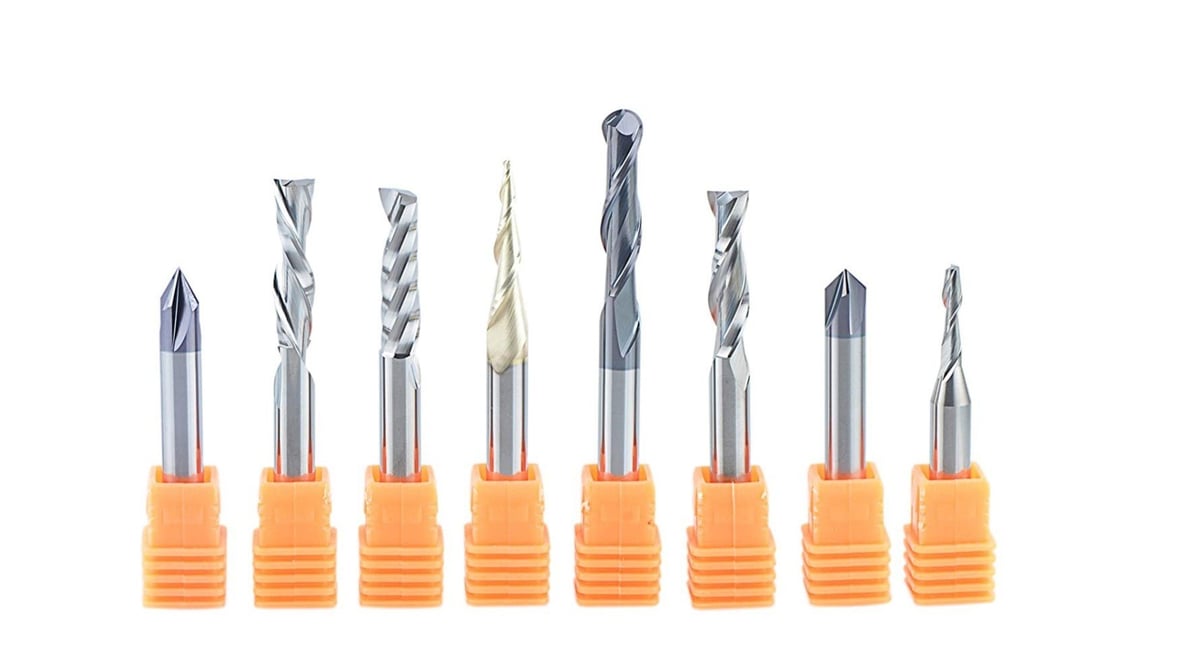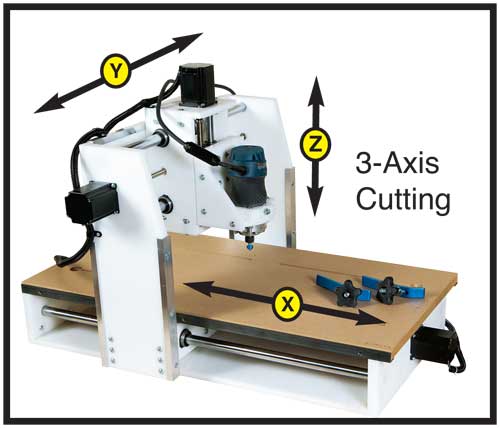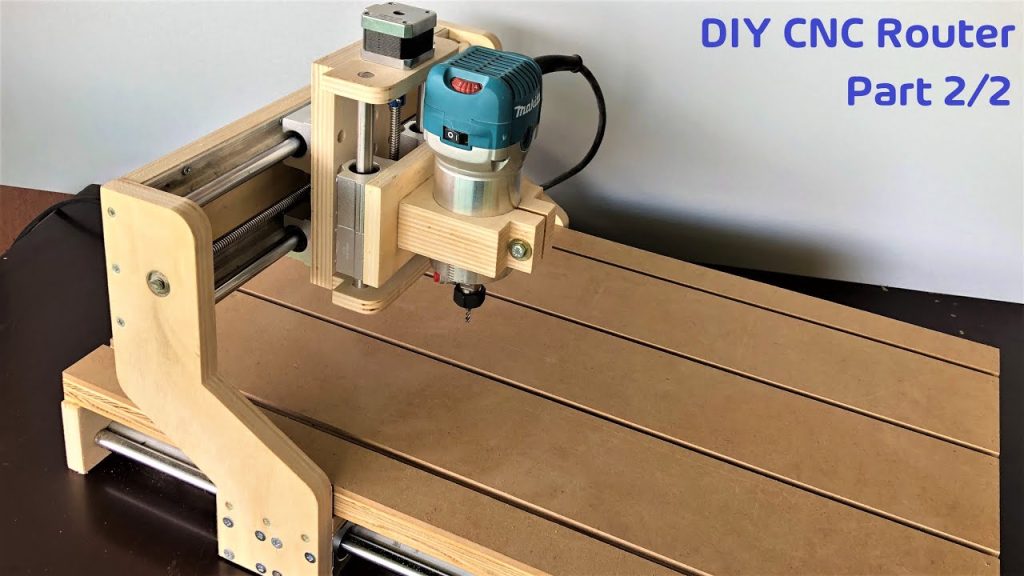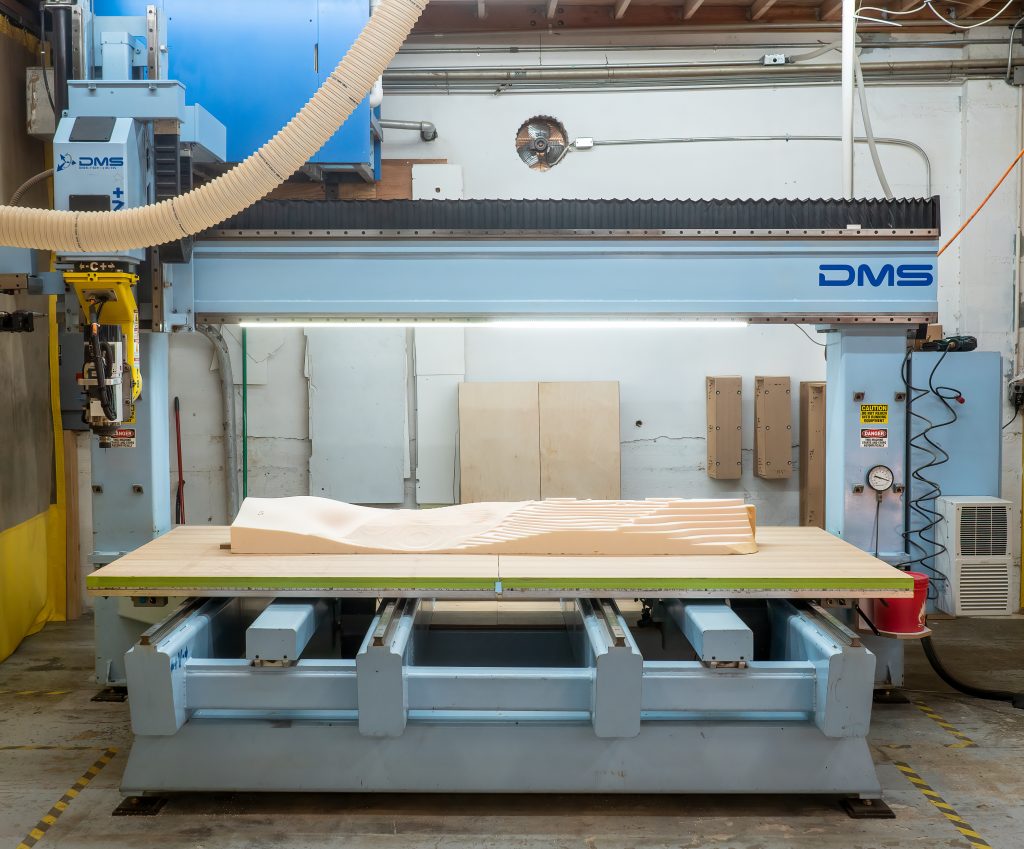Table of Contents
Are you wondering if you can use a CNC bit in a router? If you are a woodworker or DIY enthusiast, you know that the right tool can make all the difference in achieving precision and efficiency. In this article, we will explore the compatibility of CNC bits and routers and discuss the advantages and disadvantages of using this combination.
While both CNC machines and routers are used for cutting and shaping materials, they have different designs and purposes. If you are considering using a CNC bit in a router, it is important to understand the potential risks and benefits to achieve the best results for your project. Let’s dive into the details and find out if this option is right for you.
Can You Use a CNC Bit in a Router?
If you have a woodworking project that requires precision and accuracy, you may be considering using a CNC bit in your router. However, before you make the decision to use a CNC bit, there are a few things to consider.
What is a CNC Bit?
A CNC bit, also known as a router bit, is a cutting tool that is designed for use with a CNC machine. CNC machines are computer-controlled cutting machines that are used in industrial manufacturing processes to produce parts with high accuracy and precision.
CNC bits come in a variety of shapes and sizes, and are made from a range of materials including carbide, high-speed steel, and diamond-tipped. They are designed to cut through a range of materials including wood, plastic, and metal.
Can You Use a CNC Bit in a Router?
The short answer is yes, you can use a CNC bit in a router. However, there are some limitations to using a CNC bit in a router that you should be aware of.
One of the main limitations of using a CNC bit in a router is that a router is not designed for the same level of precision and accuracy as a CNC machine. While a CNC machine is able to move the cutting tool in three dimensions with high precision, a router only moves the cutting tool in two dimensions.
Another limitation of using a CNC bit in a router is that a CNC bit is designed to be used at high speeds and with a high level of force. Using a CNC bit in a router at these high speeds and forces can cause damage to the router, and potentially even cause injury to the user.
Benefits of Using a CNC Bit in a Router
Despite the limitations of using a CNC bit in a router, there are still some benefits to using this cutting tool in a router.
One of the main benefits of using a CNC bit in a router is that it allows for greater precision and accuracy than using a traditional router bit. This can be particularly useful when working on projects that require intricate details and fine cuts.
Another benefit of using a CNC bit in a router is that it allows for greater efficiency and speed when cutting. This can be particularly useful when working on large projects that require a lot of cutting.
CNC Bit vs Router Bit
While a CNC bit and a router bit may look similar, there are some key differences between the two.
One of the main differences between a CNC bit and a router bit is the level of precision and accuracy that they are designed for. CNC bits are designed for use with high-precision CNC machines, while router bits are designed for use with less precise routers.
Another difference between a CNC bit and a router bit is the materials that they are made from. CNC bits are typically made from high-quality materials such as carbide and diamond-tipped, while router bits are often made from less expensive materials such as high-speed steel.
Conclusion
In conclusion, while it is possible to use a CNC bit in a router, there are limitations to doing so. While a CNC bit may offer greater precision and accuracy than a traditional router bit, it is important to be aware of the potential risks and limitations of using a CNC bit in a router. Ultimately, the decision of whether to use a CNC bit in a router will depend on the specific needs of your woodworking project.
Frequently Asked Questions
Here are some commonly asked questions about using a CNC bit in a router.
Can You Use a CNC Bit in a Router?
Yes, you can use a CNC bit in a router if the shank diameter of the bit matches the collet size of the router. CNC bits are typically designed for CNC machines, but they can also be used in a router as long as the router has the appropriate collet size. However, it’s important to note that not all CNC bits are suitable for use in a router.
When using a CNC bit in a router, it’s important to make sure that the bit is securely fastened in the collet and that the router is set to the appropriate speed for the bit. It’s also important to be aware of the limitations of the router and to use the appropriate safety gear, such as eye and ear protection.
What Are CNC Bits?
CNC bits are cutting tools that are designed for use with CNC machines. They are typically made of high-speed steel, carbide, or diamond and come in a variety of shapes and sizes. CNC bits are used to cut a wide range of materials, including wood, plastic, metal, and composites.
Because CNC bits are designed for use with CNC machines, they are typically more expensive than router bits. However, they are also often more durable and can produce more precise cuts than router bits.
What Are Router Bits?
Router bits are cutting tools that are designed for use with routers. They are typically made of high-speed steel, carbide, or diamond and come in a variety of shapes and sizes. Router bits are used to cut a wide range of materials, including wood, plastic, and composites.
Router bits are typically less expensive than CNC bits and are more widely available. However, they may not be as durable as CNC bits and may not produce as precise cuts.
What Are the Benefits of Using CNC Bits in a Router?
The main benefit of using CNC bits in a router is that they can produce more precise cuts than router bits. CNC bits are typically more durable than router bits and can be used to cut a wider range of materials. Additionally, using CNC bits in a router can be more cost-effective than using a CNC machine, especially for hobbyists or small shops.
However, it’s important to note that not all CNC bits are suitable for use in a router and that using a CNC bit in a router may require additional safety precautions and setup time.
What Are the Limitations of Using CNC Bits in a Router?
One of the main limitations of using CNC bits in a router is that not all CNC bits are suitable for use in a router. Additionally, using a CNC bit in a router may require additional safety precautions and setup time. The size and power of the router may also limit the size and depth of the cuts that can be made.
Finally, using CNC bits in a router may not be as precise as using a CNC machine, as the router may not be able to maintain the same level of accuracy and consistency as a CNC machine.
In conclusion, the answer to the question “Can You Use a CNC Bit in a Router?” is a bit complicated. While it is technically possible to use a CNC bit in a router, it is not always recommended.
Firstly, CNC bits are designed for use in CNC machines, which have a completely different level of precision and control than a router. Using a CNC bit in a router may lead to less precise cuts and potentially damage both the bit and the router itself.
Secondly, CNC bits are often much more expensive than router bits and may not be necessary for the average DIY or woodworking project. It is important to consider the specific needs and requirements of each project before deciding which type of bit to use.
Overall, while it may be tempting to use a CNC bit in a router, it is important to weigh the potential risks and benefits before making a decision. In most cases, using a router bit designed specifically for use with a router will result in better, more precise cuts and ultimately a better end result.
Request a quote today!
[contact-form-7 id="1578" title="Contact form"]
Please compress the file into a ZIP or RAR file before uploading. Alternatively, send through your RFQ by email.
enquires@unitymanufacture.com





